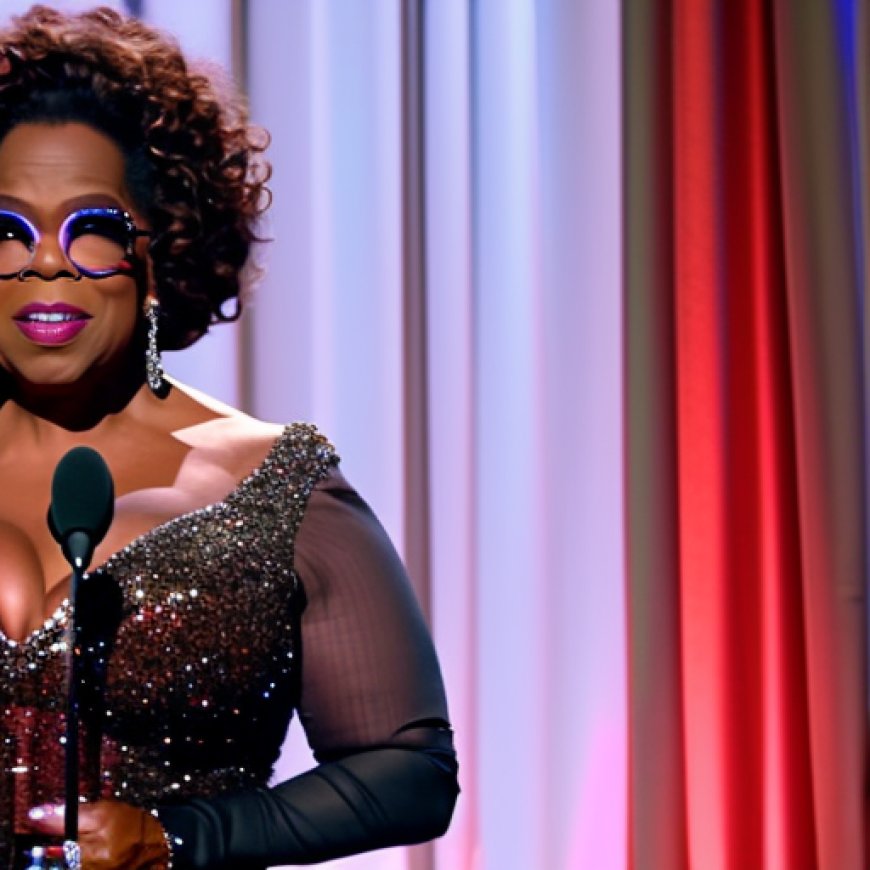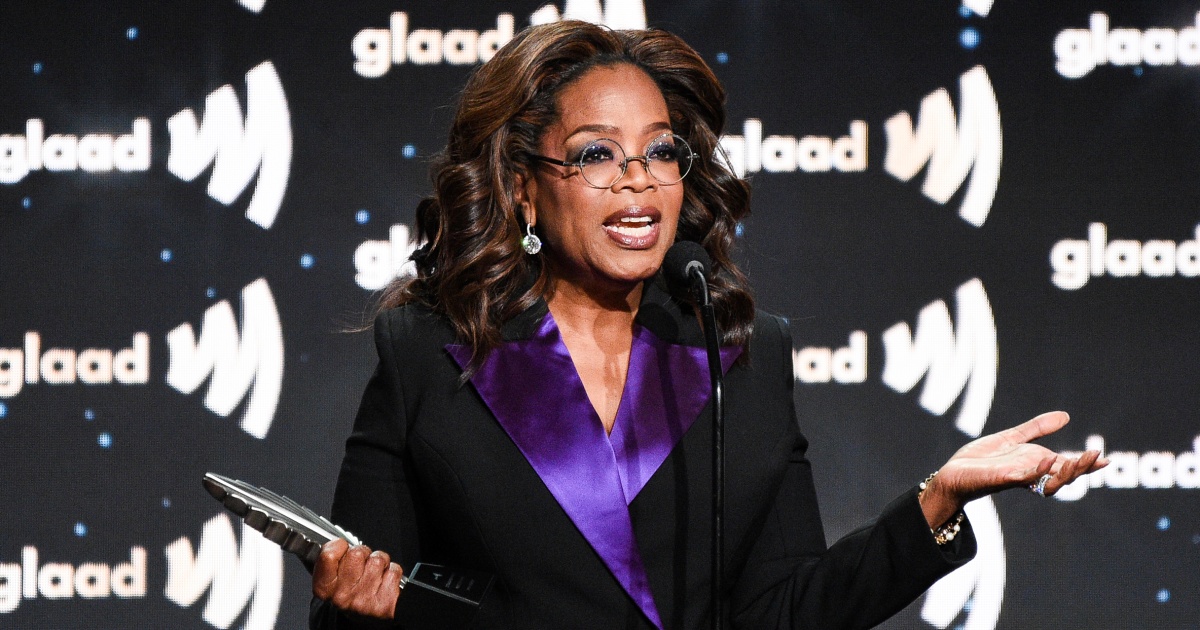Oprah Winfrey pays tribute at GLAAD Media Awards to gay brother who died from AIDS
Oprah Winfrey pays tribute at GLAAD Media Awards to gay brother who died from AIDS NBC News


Oprah Winfrey Pays Tribute to Late Brother and Advocates for LGBTQ Rights

In an emotional speech during the GLAAD Media Awards in Los Angeles on Thursday night, Oprah Winfrey paid a tearful tribute to her late brother, Jeffrey Lee, who died from AIDS in 1989 when he was 29.
Background
“Growing up at the time we did, in the community that we did, we didn’t have the language to understand or to speak about sexuality and gender in the way that we do now,” said Winfrey, who was accepting the advocacy group’s Vanguard Award for LGBTQ allyship. “At the time, I really didn’t know how deeply my brother internalized the shame that he felt about being gay. I wish he could have lived to witness these liberated times and to be here with me tonight.”
Using Her Platform for LGBTQ Advocacy
Winfrey, one of the most famous and successful women in the world, then reflected on how she has used her platform over the past four decades — including her wildly popular daytime talk show, “The Oprah Winfrey Show,” which ran from 1986 to 2011 — to amplify LGBTQ voices and dispel misinformation about HIV/AIDS, which disproportionately affects gay and bisexual men and transgender women.
Addressing Misinformation
She recalled taking her syndicated talk show to Williamson, West Virginia, in 1987 and holding a town hall after discovering that local officials there had shuttered a community pool because a man with AIDS had gone swimming there.
“They shut the whole pool down and the town turned against him because he’d gone swimming with his sister, and it caused such an uproar that there was rampant misinformation and misguided fear,” she said. “We took our whole show there, and we brought a medical expert … we brought the facts and tried to erase some of the biases.”
Winfrey then recalled returning to Williamson more than two decades later, in 2010, to revisit that community and “help people confront their beliefs around homosexuality and saw both the personal growth and the lack of personal growth that had taken place.”
Supporting LGBTQ Representation
Almost a decade after her first trip to Williamson, Winfrey said, she decided to appear on a historic episode of Ellen DeGeneres’ sitcom, “Ellen,” in 1997.
“I got a call from Ellen asking me to play the role of a therapist on her show, as she came out and became the first gay lead character on a U.S. network television show,” she recalled.
What surprised her at the time, she said, was the influx of hate mail she received afterward.
“This was before social media, y’all” she added. “People were actually writing down and paying for a stamp and mailing in their hate and outrage.”
Since launching the Oprah Winfrey Network, or OWN, in 2011, Winfrey has brought documentaries centered on transgender people to her audience, including “Becoming Chaz” in 2011 and “I Am Jazz” in 2015. In 2021, on Apple TV’s “The Oprah Conversation,” she also noted, “Elliot Page entrusted me to share the joy of his transition, which helped open up the understanding of the challenges, fears and pressure facing our trans youth today.”
Continuing Support for LGBTQ Community
At the end of her almost 10-minute speech, Winfrey said she would continue to “support and produce projects centering LGBTQ storylines” and “hire queer and trans filmmakers to bring authentic characters to the screen.”
“When we can see one another, truly see one another, when we are open to supporting the truth of a fellow human, it makes for a full, rich, vibrant life for us all,” she said. “That’s what I wish my brother Jeffrey could have experienced — a world that could see him for who he was and appreciate him for what he brought to this world.”
Conclusion
For more from NBC Out, sign up for our weekly newsletter.
SDGs, Targets, and Indicators
| SDGs | Targets | Indicators |
|---|---|---|
| SDG 3: Good Health and Well-being | Target 3.3: By 2030, end the epidemics of AIDS and other communicable diseases | No specific indicators mentioned in the article |
| SDG 4: Quality Education | Target 4.7: By 2030, ensure that all learners acquire the knowledge and skills needed to promote sustainable development, including among others through education for sustainable development and sustainable lifestyles, human rights, gender equality, promotion of a culture of peace and non-violence, global citizenship and appreciation of cultural diversity and of culture’s contribution to sustainable development | No specific indicators mentioned in the article |
| SDG 5: Gender Equality | Target 5.1: End all forms of discrimination against all women and girls everywhere | No specific indicators mentioned in the article |
| SDG 10: Reduced Inequalities | Target 10.3: Ensure equal opportunity and reduce inequalities of outcome, including by eliminating discriminatory laws, policies, and practices and promoting appropriate legislation, policies, and action in this regard | No specific indicators mentioned in the article |
| SDG 16: Peace, Justice, and Strong Institutions | Target 16.7: Ensure responsive, inclusive, participatory, and representative decision-making at all levels | No specific indicators mentioned in the article |
Behold! This splendid article springs forth from the wellspring of knowledge, shaped by a wondrous proprietary AI technology that delved into a vast ocean of data, illuminating the path towards the Sustainable Development Goals. Remember that all rights are reserved by SDG Investors LLC, empowering us to champion progress together.
Source: nbcnews.com

Join us, as fellow seekers of change, on a transformative journey at https://sdgtalks.ai/welcome, where you can become a member and actively contribute to shaping a brighter future.







